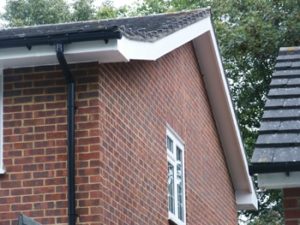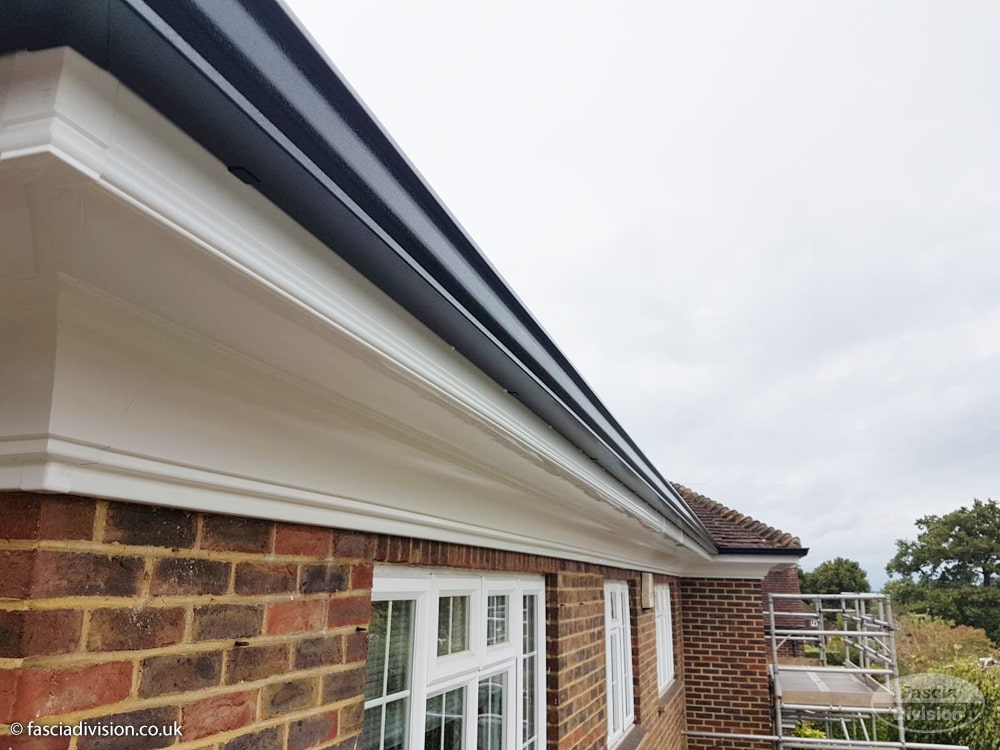Five Killer Quora Answers To Fascia And Soffit Upgrades

Fascia and Soffit Upgrades: Enhancing Your Home’s Exterior
Intro
When it comes to home improvement, lots of property owners concentrate on the more visible elements like siding, windows, and doors. Nevertheless, similarly important but typically ignored locations are the fascia and soffit. Updating these elements can significantly boost a home’s outside aesthetics, enhance functionality, and offer better defense versus the components. This short article will dig into the significance of fascia and soffit, the numerous upgrade options offered, and how these improvements can benefit your home.

Comprehending Fascia and Soffit
What is Fascia?
Fascia refers to the horizontal board that runs along the roofing’s edge. It is typically the visible trim utilized to connect the roofline to the home’s exterior walls. The fascia board plays an essential role in supporting the lower edge of the roof, attaching the seamless gutters, and often including a finishing touch to the architectural style of the home.
What is Soffit?
Soffit is the product that covers the underside of overhanging eaves. It fills the space between the roofline and the exterior wall, providing total coverage while enhancing the overall appearance of the eaves. Soffits are necessary for ventilation, as they permit air to flow into the attic space, assisting to preserve proper temperature balance and avoid moisture buildup.
Why Upgrade Fascia and Soffit?
Updating fascia and soffit components can yield a host of benefits, including:
- Aesthetic Appeal: New fascia and soffit products can match the style of your home, raising its curb appeal.
- Defense from Moisture: Poorly maintained fascia and soffit can rot or become infested with insects. Upgrading with moisture-resistant products provides much better protection.
- Enhanced Ventilation: Well-designed soffits enhance attic ventilation, which can lead to energy cost savings while minimizing the risk of ice dams in winter season.
- Increased Property Value: An aesthetically attractive and well-maintained exterior can enhance your home’s market price.
- Decreased Maintenance: Modern materials frequently have better longevity and need less upkeep compared to standard wood choices.
Upgrade Options: Materials and Styles
When considering fascia and soffit upgrades, house owners have numerous materials and designs to pick from. Below is a table summing up the most common choices:
| Material | Description | Pros | Cons |
|---|---|---|---|
| Vinyl | Plastic material that mimics wood textures | Low maintenance, moisture-resistant | Can fade over time |
| Aluminum | Lightweight metal available in numerous colors | Resistant to corrosion, long-lasting | May dent quickly |
| Wood | Conventional option that provides natural charm | Simpler to work with, aesthetically pleasing | Needs routine maintenance |
| Fiber Cement | Composite product that simulates wood | Exceptionally durable, weather-resistant | Much heavier, might require unique tools |
| PVC | Lightweight plastic option | Easy installation, resistant to rot | May absence color variety |
Installation Process
Upgrading fascia and soffit requires a comprehensive technique to guarantee sturdiness and correct function. Here’s a brief overview of the installation procedure:
-
Assessment: Evaluate the existing condition of your fascia and soffit. Search for indications of rot, damage, or bugs.
-
Product Selection: Choose the appropriate products based upon visual appeals, maintenance choices, and budget.
-
Preparation: Remove the old fascia and soffit materials thoroughly. Ensure all locations are tidy and without debris.
-
Installation:
- Install the new soffit panels, guaranteeing appropriate ventilation.
- Attach the fascia boards, securing them firmly and looking for any gaps where moisture could get in.
-
Completing Touches: Paint or seal the brand-new materials as needed and install rain gutters, ensuring they are firmly connected to the fascia.
Often Asked Questions (FAQs)
1. What is the perfect time for fascia and soffit upgrades?
The ideal time for these upgrades is usually during spring or early fall when climate condition are moderate. Preventing extreme temperature levels can assist ensure the materials set correctly and keep their shape.
2. How do I know if my fascia and soffit need to be changed?
Signs of damage include peeling paint, sagging boards, water damage, or noticeable gaps. If you can see rot or pest infestations, it’s time to think about an upgrade.
3. Can I set up fascia and soffit upgrades myself?
While some property owners may feel positive in DIY installations, hiring professionals is typically recommended. They bring knowledge and guarantee that the installation fulfills regional building regulations.
4. What should I try to find in a contractor?
When selecting a contractor, look for licenses and insurance coverage, ask for recommendations, and check out reviews. It’s beneficial to get numerous quotes to ensure you receive a reasonable price.
5. How much does it usually cost to upgrade fascia and soffit?
The expense can vary significantly based upon elements such as product option, labor expenses, and the general size of your home. Usually, house owners may spend in between ₤ 1,500 and ₤ 5,000.
Upgrading fascia and soffit components is a vital element of home maintenance that ought to not be neglected. Through boosted visual appeals, improved defense, and increased property value, these upgrades serve a vital function in protecting the integrity and appeal of your home. By comprehending your options and the benefits they provide, house owners can make informed decisions to boost both the beauty and performance of their residential or commercial property.


